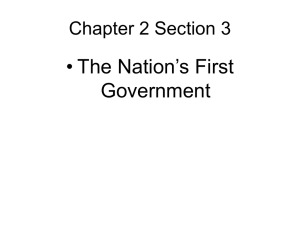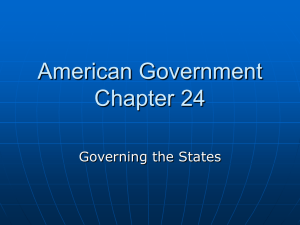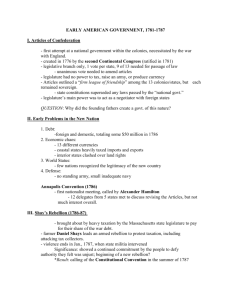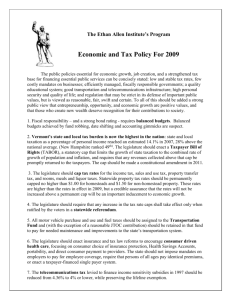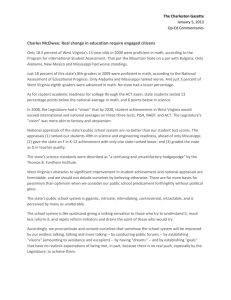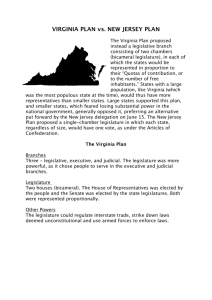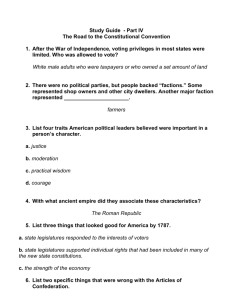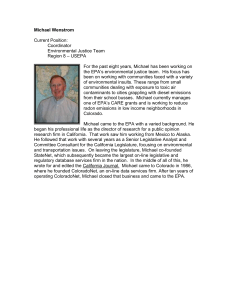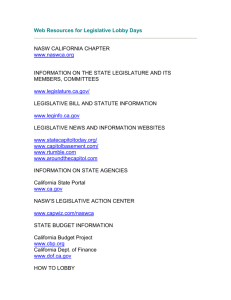Vote for One-House Legislature
advertisement
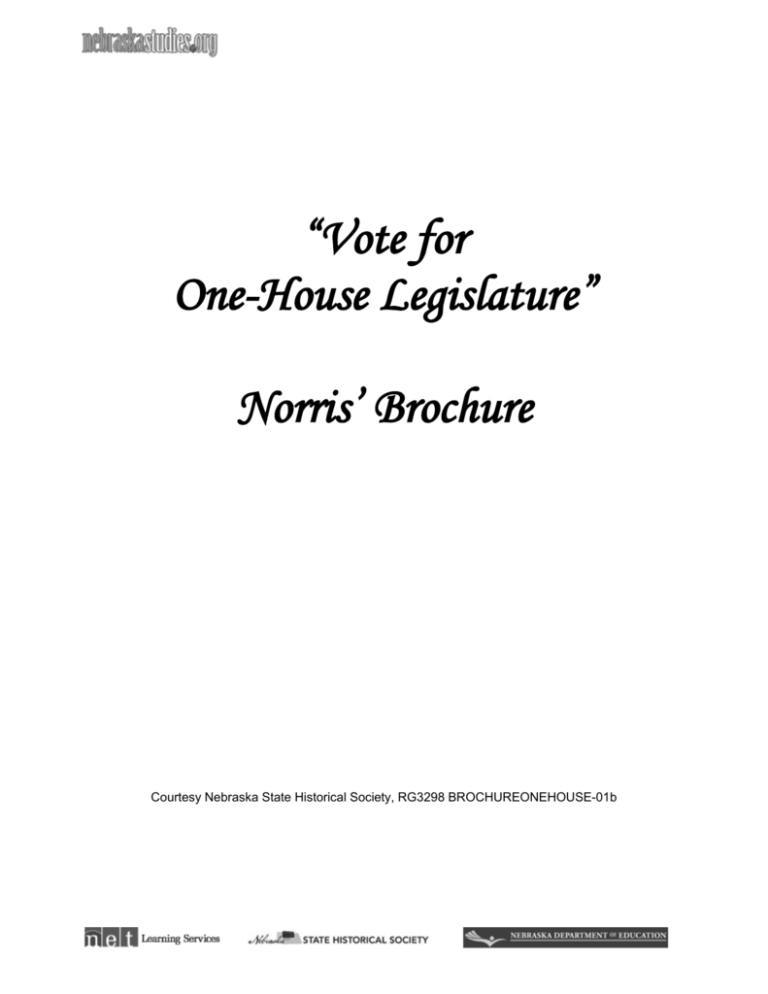
“Vote for One-House Legislature” Norris’ Brochure Courtesy Nebraska State Historical Society, RG3298 BROCHUREONEHOUSE-01b “Vote for One-House Legislature” Courtesy Nebraska State Historical Society, RG3298 BROCHUREONEHOUSE-01b 2 “Vote for One-House Legislature” 3 (Column 1) TO THE VOTERS OF NEBRASKA: When you go to the polls you will be handed a ballot on which the One-House Legislature proposition will appear in the following form: 330 331 X YES NO “Proposed by Imitative Petition An amendment to the Constitution of Nebraska providing that beginning with the regular session of the legislature in 1937 the legislative authority of the state shall be vested in a legislature consisting of one hose of not less than thirty nor more than fifty members, the members to be nominated and elected in a non-partisan manner; to provide for the compensation and terms of office of said legislative members; to provide for sessions of said legislature and to provide the procedure of and in said legislative body necessary for the enactment of laws.” VOTE “YES” The present two-house Legislative system is an historical accident. The structure of our state legislature was carried over from the make-up of the colonial legislative bodies as they existed in 1776. The colonial legislatures, naturally, were patterned after the mother country, England, and England’s Parliament at that time was a two-house body, one chamber representing the English nobility and aristocracy, the other the common people. No good reason now exists for continuing this slavish imitation of an ancient English legislative system now in the effect discarded even by England itself. Nebraska does not give special representation to specially privileged classes. Adoption of the one-house Legislature proposal will result in the following advantages. I. The jealousy, friction, and rivalry between the two houses, which often results in deadlocks and defeat of constructive legislation, will be eliminated by a one-house legislature. Benjamin Franklin long ago compared a two-chambered legislature to a wagon with a horse hitched at each end and the two pulling in opposite directions. The cities of American long ago . . . (Column 2) . . . abandoned as unworkable the two-chamber council system. No business could function with two boards of directors equal in authority. II. A one-house legislature will make possible the definite fixing of responsibility for action taken on all bills introduced; where two bodies of persons are involved it is hard to fix blame. It will not be possible as now to shift blame from one house to another. Public attention will be focused upon a single body, permitting close scrutiny of all legislative proceedings while laws are in the process of enactment. Each member of a one-house legislature will be more important and therefore more conspicuous. The public will be enable to watch his acts and reward or punish him accordingly. III. A one-house legislature will decrease greatly the opportunity for corruption; special interests desiring to kill proposed legislation find their way twice as easy when it is necessary to control or corrupt only one of two houses. IV. Legislation by conference committees will be abolished. Approximately 15 per cent of all bills, and 75 per cent of all important measures, enacted into law are the product of some conference committee. When a bill passes one branch of the legislature, is amended in the other house, and the first house refuses to concur in the amendments, a conference committee is selected by the presiding officers of the two houses. This conference committee in reality constitutes a third house. The people have no voice as to who its members shall be, its work is performed in secret, and when the “Vote for One-House Legislature” 4 proposed law framed by this committee is submitted to the House and Senate, it cannot be amended. It must be voted up or down as a whole. Members must take what they believe to be bad in order to secure what they believe to be good. Legislation by conference committees is secret, irresponsible legislation by five or six men appointed at the suggestion of party leaders. A one-house legislature will end all of this. V. The tax burden of the state will be reduced by the adoption of the one-house legislature proposal. Approbations or the 1933 session of Legislature totaled $201,668.13. Of this, $110, (Next page missing)
